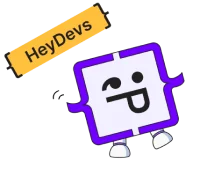
The C Programming Language: Unearthing the Controversy Behind the Criticism
In the vibrant arena of programming languages, few evoke as passionate debates and divided opinions as the venerable C language.
In the vibrant arena of programming languages, few evoke as passionate debates and divided opinions as the venerable C language. In this expansive blog post, we embark on a journey to uncover the reasons behind the polarizing question: "Why does C language receive so much hate?" Prepare to explore the colorful world of programming opinions with an open mind and a cheerful spirit.
The Curious Case of C
C, the granddaddy of modern programming languages, has a storied history dating back to the early 1970s. Its influence on the development of software cannot be overstated, but with great power comes great scrutiny. Some developers have grown to resent C for various reasons, leading to a cascade of criticism that seems to echo through the corridors of code.
Why the Controversy?
Let's delve into the heart of the matter and explore why C has earned its fair share of detractors:
1. Syntax Simplicity or Blandness?
Critics often point out that C's syntax, while simple, can be seen as too terse or even uninspiring. They argue that the language's minimalist approach can make code less expressive and less readable when compared to languages with more verbose syntax.
2. Manual Memory Management
One of the most notorious aspects of C programming is manual memory management. While this gives developers full control over memory allocation and deallocation, it also opens the door to memory leaks, buffer overflows, and other dreaded bugs. Many programmers prefer higher-level languages that handle memory management automatically.
3. Lack of Abstractions
C doesn't provide the same level of high-level abstractions as languages like Python or Java. Developers often have to implement common data structures and algorithms from scratch, which can be time-consuming and error-prone.
4. No Built-in String Type
C doesn't have a built-in string data type, relying instead on character arrays and pointer manipulation. This can lead to tricky string handling, especially for newcomers.
5. Portability Challenges
While C is known for its portability, the lack of standardized libraries across different platforms can create headaches for developers aiming for cross-platform compatibility.
6. Learning Curve
C can have a steep learning curve, especially for beginners who may find it less forgiving than more modern languages.
7. The Stigma of Legacy Code
Some developers dislike C because they associate it with maintaining and debugging legacy codebases that have grown over the years. The prospect of working with older code can be daunting.
The Flip Side: Why Love C?
While C has its critics, it also has a legion of devoted followers who sing its praises. They appreciate C for its:
- Speed and efficiency in system-level programming.
- Control over memory and hardware.
- Role as the foundation of many other languages.
- Versatility in domains like embedded systems and game development.
Conclusion: C - The Hero and Villain of Coding
In the grand tapestry of programming languages, C plays a dual role. It's a hero, the bedrock of modern computing, responsible for the software that powers our world. It's also a villain, a source of frustration and challenge for those who grapple with its idiosyncrasies.
Ultimately, whether you love or hate C comes down to your perspective and the context of your work. The very characteristics that make C a target of criticism are the ones that make it indispensable in certain scenarios. In the ever-evolving landscape of programming, where new languages emerge and fade away, C stands as a testament to the enduring power of simplicity and control.
So, as you embark on your coding adventures, remember that the choice of programming language is a matter of context and preference. Embrace the diversity of languages, and consider C not as a source of hate, but as a venerable elder with much wisdom to impart to those willing to listen.
About HeyDevs
HeyDevs is a revolutionary new platform that empowers developers to take control of their careers, connect with other developers and find job opportunities that align with their goals and interests, without ever needing to apply for a single job! With HeyDevs, companies compete for you, not the other way around.
For developers, HeyDevs offers invaluable resources including our specialized swipe-to-work function, anonymous profile, and customizable search criteria, with the ability to connect and chat with prospective employers completely on-site.
For businesses, HeyDevs offers tools to maximize the recruitment process, saving time and money, with a talent pipeline that streamlines a majority of the hiring process directly on the platform, eliminating the need for recruiters or headhunters so the hiring process can be handled with HeyDevs as the only medium between employer and candidate, all powered by smart matching to ensure the most relevant matches are provided first. HeyDevs is a truly unbiased hiring platform, delivering a diverse pool of talent that hides information such as avatar, age, and gender, focusing solely on experience and skill, and paving the way for a more inclusive workplace.





